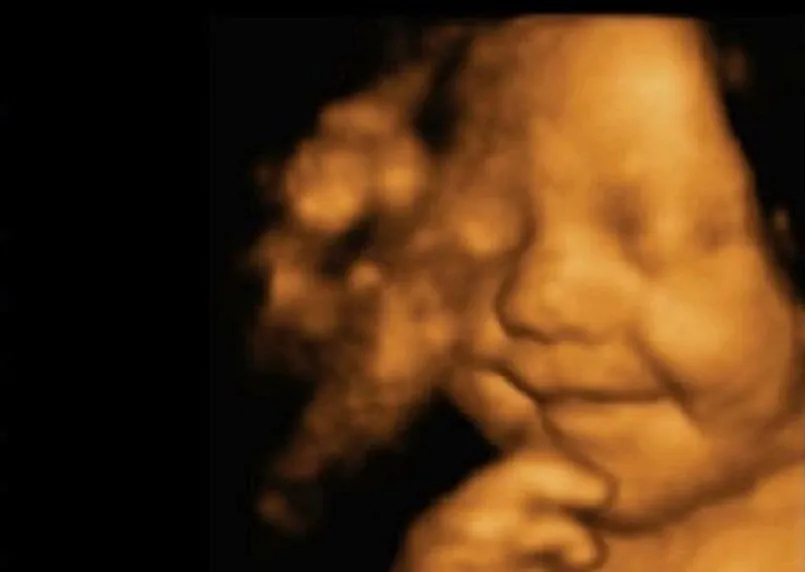In 2011 two philosophers and 'experts' in ethics, Giubilini and Minerva, wrote an article in the prestigious Journal of Medical Ethics where they argue that the same arguments used to justify abortion should be used for the killing of newborn babies, postnatally.

According to the two philosophers newborns as well as fetuses are only "potential persons", which should lead to permitting infanticide, or "after-birth abortion" as they call it. This to emphasize that the killing of a newborn should rather be compared with abortion than with murdering a child, since the newborn hasn't had time to develop consciousness of their person and thus hasn't got the ability of self-reflection.
People who want the right to kill others usually use language distortion to justify their reasoning. This was the case with the Holocaust as well as the mass killings under Stalin's and Mao's leadership and the genocides in Rwanda and Cambodia. In all these cases, the language was distorted to dehumanize and demonize those they wanted to kill. They called their enemies sub-standard half-humans and cockroaches that were obstacles to the country's development. A similar linguistic corruption is present in the debate about abortion and euthanasia. "Removal of cervical content". "Postnatal abortion". "The right to a dignified death". Etc.

Giubilini's and Minerva's article caused some outrage. More importantly, it has triggered thought processes allowing us to see and discuss what actually happens when human life is no longer held sacred. Fortunately few regular people, who are not experts in ethics, think it's okay to kill a newborn child, despite its lack of a developed consciousness. In Sweden about 1 in 4 child is aborted (~35000 of 100000 each year). It's not very easy to get pregnant. And it's not very difficult to get hold of and use contraceptives. One of the reasons those late abortions are upsetting are that the fetuses are showing signs of an emotional life - they smile and laugh - and look very human-like, just like newborn babies, only very much smaller. The fact that abortion is about killing something that is actually living, alive, becomes so much more evident when it comes to aborting fetuses after the 18th week. But essentially the difference is small between a ten week old fetus, or one that is twice as old. It's a child in the making, regardless.
You can not put up a natural limit where a fetus is too incapable and undeveloped to be considered a human being. The only natural boundary is before life arose and after. Once an embryo is there, there's life. Abortion advocates often claim that there's another limit, for instance when the embryo attaches itself to the uterus, or when the brain develops, or when the fetus begins to smile, or when it can survive outside the mother's body. But all those boundaries are fluid and arbitrary. You can't say that there's any difference in principle or a clear boundary after conception that determines whether this small life is human or not. Everything is there potentially, from the outset, in the tiny embryo: a set of genes, an eye color, a body that is just like ours.

Sure, it's problematic with late abortions. But I argue that it applies to all abortions, and that abortion is always about killing a child. And when the experts in ethics argue for and propagate to extend the right of abortion to apply after birth also on the grounds of considering themselves to be able to move forward the limit for when a child counts as a person, it only shows that I'm right when it comes to arbitrary evaluations.
So, one can say that Giubilini and Minerva on the one hand and me on the other actually share the view that there really isn't much difference between the unborn and the newborn child. But the evaluation of whether the little human has the right to life or not is based on widely different values and also produce different results; a living child or a euthanized child.
The main difference between born and unborn rather lies in the fact that you can actually both see, hear, smell and touch the newborn. A visible baby clearly shows that you have a living human in front of you, it's impossible to rationalize. And it's often on this basis that the moral assessment of human dignity is done.
Could it be that the strong reactions against infanticide are due to the fact that the killing of the little human feels more unbearable to think about when the child is visible outside the woman's body, and that it's no longer possible to deny that it's a living human before our eyes?
Already now it's common to abort "unwanted" fetuses that are more or less the same age as wanted prematurely born children who are considered worth the cost of a resource-intensive care. Late abortions are perceived as emotionally more difficult for the staff as the fetuses are quite big and very much look like tiny babies. Especially if they are around 20-21 weeks.
The highly understandable moral indignation over Giubilini's and Minerva's view may be seen in light of this fact, and then one can wonder if they - despite their unpleasant denial of human dignity in young children - after all haven't struck the nail on the head? Because it's certainly absurd that the child's spatial position - inside or outside the womb - will determine whether it's a human or not.
— SteemSwede